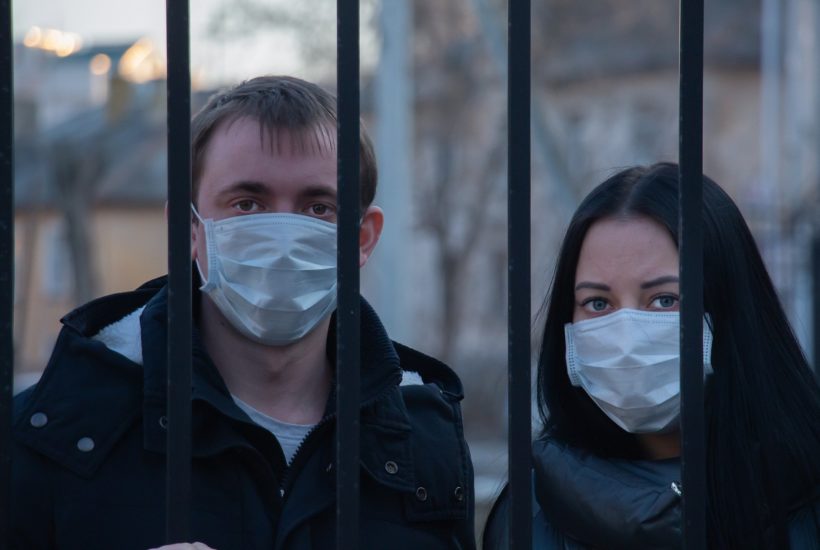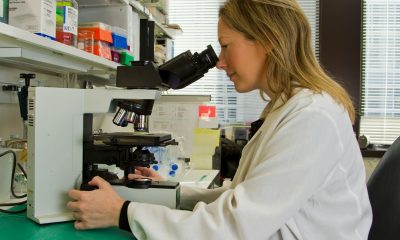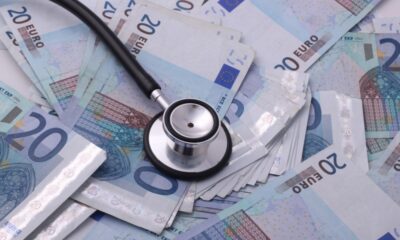Biotech
The first national clinical trial of a COVID-19 vaccine is now underway in Chile
The clinical trial, led by the Catholic University, together with other universities and the Sinovac Biotech laboratory, already has funding from the public sector, the Confederation of Production and Commerce and the university. The phase III clinical study for a vaccine in development, seeks to ensure that Chile becomes part of this development by actively participating in the process.

In the Health Ministry’s daily balance sheet, the Minister of Science, Technology, Knowledge and Innovation, Andrés Couve, together with the Rector of the Catholic University, Ignacio Sánchez, announced the contributions with which the first phase III clinical trial of a COVID-19 vaccine in Chile will be financed and provided details of this process that begins in mid-August.
To ensure preferential access conditions for the country to this vaccine, the Minister of Science announced that the clinical trial led by the Catholic University, together with other national universities, and the Sinovac Biotech laboratory already has financing worth $6.83 million(5.2 billion Chilean pesos) from the public sector, the Confederation of Production and Commerce (CPC), and contributions from the university. The proposal to test this development was presented and analyzed by the Vaccine Advisory Council COVID-19 of the Ministry of Science and approved by the Inter-Ministerial Committee, which also includes the Ministries of Health and Foreign Affairs.
Read more about the first national clinical trial for a COVID-19 vaccine in Chile and find the latest discoveries in the biotech sector with the Born2Invest mobile app. Our companion app brings you the latest economic news in the world.
Chile is actively involved in finding a vaccine to halt the coronavirus pandemic
Minister Andrés Couve indicated that “at the moment, there is no vaccine for COVID-19. That is why we have been working since April with a scientific group that advises us analyzing multiple options among the most advanced at international level. In addition to Sinovac, we are in talks with Jansen, Oxford, Moderna and Cancino, which are already entering the experimental phase 3. For this purpose, a consortium of universities is being set up that will be responsible for executing these clinical trials. Once one or more vaccine options exist, the Ministry of Health will decide which vaccine will be distributed to the population and what the schedule will be.”
For his part, the Minister of Health, Enrique Paris, said that “there are different vaccine options, all of which will be evaluated in Chile through the Advisory Committee on Vaccines and Immunizations, as befits our institutions, but I would like to highlight the importance the President of the Republic has given to this issue, which is why we wanted to announce the progress we are making.”
The rector of the Catholic University, Ignacio Sánchez, said that, after undergoing safety tests, the Phase III clinical studies seek to measure the effectiveness of the vaccine.
“This protocol includes testing and working with more than 3,000 volunteers over 18 and under 60 years of age, who will initially be recruited from the health teams, in a process that lasts several months and includes two vaccinations and measurement of the immune response. If this response is positive, we could have this vaccine formulation by 2021. One of the advantages of this protocol is that our country will have the option of having at least 20 million doses next year to vaccinate at least 10 million people if we consider 2 doses,” he said.
From the CPC, its president Juan Sutil said that “together with collaborating with the most urgent health needs, the companies and businessmen gathered in Siempre por Chile, we are also supporting this first clinical trial because it is key and urgent for us to have a vaccine and to live with the coronavirus, protecting people and activating the economy and employment as quickly as possible.”
Regarding the execution of the trial, the rector of the Catholic University explained that information will be provided in the coming weeks so that volunteers can register. The volunteers will receive two injections – one percentage will receive the vaccine and the other a placebo- and will not be paid, but they will have funding for transportation and examination costs.
The phase III clinical trial
The phase III clinical study in the framework of the collaboration between UC and Sinovac for a vaccine in development, seeks to ensure that Chile becomes part of this development by actively participating in the process. With a coordinated plan of national research and international collaboration, a mutual work agreement has been established with foreign developers, with the objective of generating sufficient doses of vaccines of national and international origin, after having completed in collaboration the rigorous evaluations of safety and effectiveness of the vaccines developed even by other entities.
This formula was generated by Sinovac and corresponds to a so-called first generation vaccine, since the technology is based on a classical methodology, consisting of the use of the inactivated virus. In simple terms, it is the SARS-CoV-2 that has been chemically treated to inactivate it and then the inactive viral particles were purified. This inactivated virus cannot cause infection, however, it retains its ability to activate the immune response and therefore generate immunity against the virus.
In a first stage of the clinical study in Chile, health personnel will be included and in a second stage the general public will be included, with a 12-month follow-up of the inoculated persons to evaluate their effectiveness and the immune protection mechanism. It is also possible that the vaccine will be determined to be effective before the end of the study, which would accelerate its approval and use in Chile. The centers where this study will be conducted will be part of the Scientific Consortium to evaluate vaccines and therapies for COVID-19, with a regional emphasis, from Santiago and to other regions.
A public-private articulation to respond to the emergency
In addition to detailing the different public funds that have been made available to support research related to COVID-19, the mental health competition, the development of emergency ventilators, the design and manufacture of safety elements for health personnel and the operation of the university network of diagnostic laboratories, Minister Couve highlighted as an unprecedented action the public-private links that have been generated around research, development, innovation and entrepreneurship associated with the emergency and the impact that this has and will have on the lives of Chileans.
To date “more than $10 billion has been contributed by the private sector to support different research and development activities that we are carrying out together with the scientific and innovation community,” he said.
__
(Featured image by vperemencom via Pixabay)
DISCLAIMER: This article was written by a third party contributor and does not reflect the opinion of Born2Invest, its management, staff or its associates. Please review our disclaimer for more information.
This article may include forward-looking statements. These forward-looking statements generally are identified by the words “believe,” “project,” “estimate,” “become,” “plan,” “will,” and similar expressions. These forward-looking statements involve known and unknown risks as well as uncertainties, including those discussed in the following cautionary statements and elsewhere in this article and on this site. Although the Company may believe that its expectations are based on reasonable assumptions, the actual results that the Company may achieve may differ materially from any forward-looking statements, which reflect the opinions of the management of the Company only as of the date hereof. Additionally, please make sure to read these important disclosures.
First published in CLUSTER SALUD America economia, a third-party contributor translated and adapted the article from the original. In case of discrepancy, the original will prevail.
Although we made reasonable efforts to provide accurate translations, some parts may be incorrect. Born2Invest assumes no responsibility for errors, omissions or ambiguities in the translations provided on this website. Any person or entity relying on translated content does so at their own risk. Born2Invest is not responsible for losses caused by such reliance on the accuracy or reliability of translated information. If you wish to report an error or inaccuracy in the translation, we encourage you to contact us.

-

 Crypto2 weeks ago
Crypto2 weeks agoXRP vs. Litecoin: The Race for the Next Crypto ETF Heats Up
-

 Crypto1 day ago
Crypto1 day agoCrypto Markets Surge on Inflation Optimism and Rate Cut Hopes
-

 Biotech1 week ago
Biotech1 week agoSpain Invests €126.9M in Groundbreaking EU Health Innovation Project Med4Cure
-

 Biotech4 days ago
Biotech4 days agoAdvancing Sarcoma Treatment: CAR-T Cell Therapy Offers Hope for Rare Tumors

























